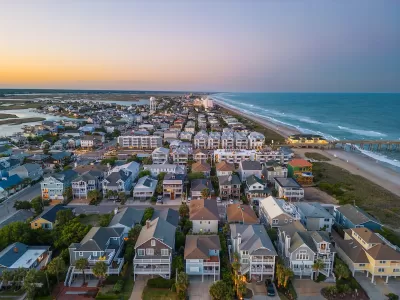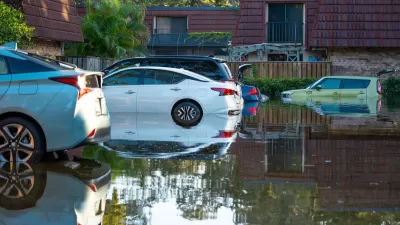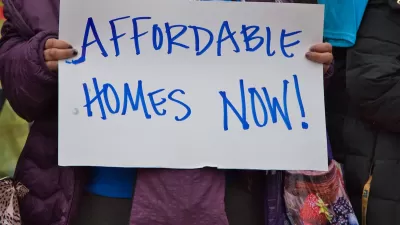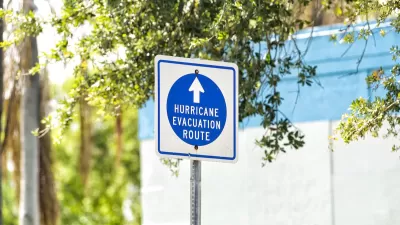Spiking insurance costs in coastal areas prone to climate disasters are making it harder for low-income housing developers to keep building.

Extreme weather driven by climate change is making it increasingly difficult to build affordable housing, reports Kelly Kenoyer in a piece for WHQR. This is largely because insurance companies are hiking premiums or refusing to cover regions prone to natural disasters.
According to one North Carolina affordable housing developer, premiums have gone up by as much as 70 percent. “Coastal North Carolina is a major retirement hub: The two fastest growing counties in the state, Pender and Brunswick, are next door to New Hanover County, and much of that growth is from retirees. Many of those moving have higher incomes than local residents, which helps drive up market-rate rents: and pushes some locals out of their homes, unless they can find subsidized apartments.”
As Kenoyer explains, “That chilling effect hits tax credit developers more than for-profit developers. After all: market rate developers can just increase rents to cover the rising tides of insurance.” Meanwhile, retirees from around the United States continue to move to disaster-prone areas, keeping demand for housing in coastal areas high.
The article notes that the federal government could ease the burden on affordable housing developers by standardizing requirements for the various housing programs used by low-income housing builders and incentivizing building climate-resilient properties.
FULL STORY: Climate-driven insurance hikes are making affordable housing even harder to build

Planetizen Federal Action Tracker
A weekly monitor of how Trump’s orders and actions are impacting planners and planning in America.

Map: Where Senate Republicans Want to Sell Your Public Lands
For public land advocates, the Senate Republicans’ proposal to sell millions of acres of public land in the West is “the biggest fight of their careers.”

Restaurant Patios Were a Pandemic Win — Why Were They so Hard to Keep?
Social distancing requirements and changes in travel patterns prompted cities to pilot new uses for street and sidewalk space. Then it got complicated.

Albuquerque Route 66 Motels Become Affordable Housing
A $4 million city fund is incentivizing developers to breathe new life into derelict midcentury motels.

DC Area County Eliminates Bus Fares
Montgomery County joins a growing trend of making transit free.

Platform Pilsner: Vancouver Transit Agency Releases... a Beer?
TransLink will receive a portion of every sale of the four-pack.
Urban Design for Planners 1: Software Tools
This six-course series explores essential urban design concepts using open source software and equips planners with the tools they need to participate fully in the urban design process.
Planning for Universal Design
Learn the tools for implementing Universal Design in planning regulations.
Heyer Gruel & Associates PA
JM Goldson LLC
Custer County Colorado
City of Camden Redevelopment Agency
City of Astoria
Transportation Research & Education Center (TREC) at Portland State University
Camden Redevelopment Agency
City of Claremont
Municipality of Princeton (NJ)





























